Is Uganda Safe? Guide to Water, Crime, Disease, Sun Safety in Uganda
Is Uganda safe? This question gets asked often by people who are thinking about traveling to Uganda to enjoy its natural attractions and amazing wildlife. The answer is “Yes!” While it is true that Uganda experiences crime, a shortage of clean water, and diseases, it is overall a safe place to visit.
Is Uganda Safe? Guide to Water, Crime, Disease, Sun Safety
People are often afraid of what they don’t know, so we want to help you learn more about Uganda’s languages, diseases, water crisis, scorching sun, and crime. So, let’s get started!
Uganda Travel Advisory: 3 Countries
While the following information will help you be safe visiting Uganda (and it’s neighboring countries), things can change.
An election or natural disaster can turn a normally safe area into one that should be avoided. In the following list, you’ll find travel advisory pages for the United States, Canada, and the United Kingdom.
- U.S. Department of State: Uganda Travel Advisory
- Government of Canada: Uganda Travel Advisory
- Government of United Kingdom: Uganda Travel Advisory

Disease in Uganda
What vaccinations do I need for Uganda?
Vaccinations mandatory for all travelers:
Vaccinations strongly recommended for most travelers:
- Hepatitis A
- Mumps, Measles, and Rubella (MMR)
- DTP (Diphtheria, Tetanus, and Polio)
- Typhoid
- Malaria (This is not a vaccination but a prescription medication you will need to take before, during and after traveling to Uganda.)
Vaccinations recommended for some travelers, depending on your situation:
- Cholera
- Hepatitis B
- Meningitis
- Rabies
- Tuberculosis
Note: If you have already received some of these vaccinations, you may not need them again, but it is best to seek the advice of your physician before traveling.
Some of the above vaccinations are recommended depending upon criteria such as:
- The area of Uganda you plan to visit (areas of poor water contamination or reported disease activity)
- What you plan to do while there (safaris, outdoor activities, etc)
- If you plan to be around animals
- Which season you visit
What diseases are in Uganda?
While there are occurrences of other disease types, below are some of the most common in Uganda:
- Yellow fever
- Malaria
- Hepatitis A, E
- HIV/AIDS
- Typhoid fever
- Dengue fever
- Tuberculosis
- Chikungunya
- Schistosomiasis
- Meningitis
- Rabies
- Traveler’s disease

Are there mosquitoes in Uganda?
There are many different types of mosquitoes in Uganda, but the main ones that carry serious diseases include:
- Aedes aegypti (Transmits the Zika virus, Yellow fever, and chikungunya)
- Aedes albopictus (Asian tiger mosquito, which transmits dengue fever, chikungunya, and possibly the Zika virus)
- Anopheles (Females transmit malaria)
- Culex (Transmits West Nile Virus)
What diseases do mosquitoes carry?
- Chikungunya
- Dengue
- Malaria
- Zika
- West Nile virus
What other biting insects are in Uganda?
In addition to mosquitoes, you may encounter ticks, black flies, bees, hornets, wasps, ants, fleas, mites, spiders, and tsetse flies. Some of these insects could carry diseases, so before you travel, talk to your doctor about any treatments and/or practices to prevent infection.
You can prevent insect bites by wearing long sleeve shirts, long pants, shoes, and hats.
If you plan to hike through forested areas, be sure to wear boots with your pants tucked inside them to prevent tick bites. You also should apply insect repellent. If you’re going to be sleeping outside, be sure to use a bed net. If you get an attached tick, here’s how to remove a tick.
Is there malaria in Uganda?
Malaria is prevalent in Uganda with a high risk throughout the year in all areas including the main towns of Kampala, Jinja, Fort Portal, Mbale, and Kigezi.
The Apac District in northern Uganda has been called the “malaria capital of the world” because it is surrounded by two large swamps that are the breeding grounds for infectious mosquitoes.
Do I need malaria tablets for Uganda?
Yes, you do. Malaria tablets are recommended for all travelers to Uganda. These tablets include Lariam (mefloquine), Malarone (atovaquone/proguanil), or doxycycline.
You will need to see your physician a few weeks before traveling so that he/she can advise which tablets are best for you and to get you started on them before arriving in Uganda.
Do you need the yellow fever vaccine for Uganda?
Before you can enter the country of Uganda, you will need to bring documentation showing that you have been vaccinated for yellow fever. This is required for all travelers aged one and older.
How long does the yellow fever vaccine last?
According to the World Health Organization, one dose of the vaccine provides lifelong protection against yellow fever disease.
What is the leading cause of death in Uganda?
Statistics from Uganda’s Ministry of Health indicate that malaria is the leading cause of death in the country, which accounts for more than 27 percent of deaths.
Other primary causes include neonatal disorders, HIV/AIDS, respiratory infections, tuberculosis, and diarrheal diseases.
Should I be concerned about food in Uganda?
Because sanitary conditions and water quality in Uganda are not that same as your system might be used to, you should be careful about what you eat while visiting. Foods that you should avoid are:
- Raw, undercooked, or cold meat
- Seafood, fish, poultry or eggs
- Foods uncovered or left at room temperature
- Unwashed or unpeeled fruits and vegetables
- Raw fruits and vegetables (unless you’re sure they have been washed in treated water)
- Unpasteurized dairy products (milk, cheese, ice cream or yogurt)
Also, you should be careful when eating foods from street vendors. A good idea is to choose foods that you can watch being cooked.
Learn more about popular foods in Uganda.
Is it safe to go to Uganda?
Is Uganda safe? That’s a question you may ask. If so, you may be pleasantly surprised to learn that Uganda is considered one of the safest countries in Africa. In the last thirty years, the country has consistently improved in safety, security, and stability.
However, like all countries, crime does exist in Uganda. But, you can increase your overall safety in Uganda by practicing the following tips:
- Don’t walk alone at night.
- Don’t act like you are lost, even if you are, because this makes you vulnerable to potential thieves.
- Don’t flaunt money or expensive devices (cell phones, cameras, tablets, laptops, etc).
- Don’t wear flashy jewelry or watches.
- Watch out for scammers. Don’t accept services from unofficial taxi rides or phony sightseeing guides.
- Carry your money, passport and important documents in anti-theft products such as slash-proof backpacks, travel bags, and money belts.
- Stay sober and aware of your surroundings.
Water Safety in Uganda
Is the water safe to drink in Uganda?
Generally speaking, the answer is no. Many freshwater sources are contaminated with parasites, bacteria, and harmful chemicals. Water in Uganda is not treated like it is in other countries such as the USA, Canada, the UK, and Australia.
You should not drink tap water unless it has first been boiled, filtered, or treated. Neither should you drink unbottled beverages or drink anything with ice.
The best way to be safe drinking water in Uganda is to stick with bottled water, which is cheap and readily available everywhere.
If you plan to spend long periods of time in rural areas or engage in outdoor activities, you may want to consider bringing a portable water filter with you to Uganda. They aren’t heavy (or expensive) and you’ll have the luxury of safe water for your whole trip.
Looking for the best safari hat? Check out our guide to African Safari Hats for Bush and Jungle Adventures.
What waterborne diseases are common in Uganda?
Drinking contaminated water (usually in areas of poorer sanitation) is the cause of the following most common waterborne diseases in Uganda:
- Hepatitis A and E
- Typhoid fever
- Cholera
Water-contact activities such as swimming or wading in freshwater streams, lakes, and rivers can also cause leptospirosis and schistosomiasis, which are also common in Uganda.
Do most hotels have filtered water?
Some hotels may have filtered water systems, but most hotels in Uganda will have kettles in each room for you to boil your water. If your hotel room doesn’t have a kettle, you can ask for one.
You might consider bringing iodine or chlorine tablets and your own portable water filters with you to Uganda to make sure you always have access to clean drinking water.
Does Kampala, Uganda have clean water?
Kampala does have areas with clean water, but some sources in other areas of the city may be contaminated. When visiting Uganda’s capital, it is still a good idea to not drink water from the tap or shower. Drink only bottled, boiled, or treated water.
Learn more about other cities in Uganda.
Can I buy bottled water in Uganda? How much does a bottle of water cost?
Bottled water is readily available almost everywhere you go in Uganda. However, some rural areas may have limited amounts, so it is a good idea to stock up in large towns. Depending on the location, a bottle of water in Uganda can cost anywhere from 1,000 to 2,000 UGX. Learn more about Uganda’s currency.
Be sure to buy bottled water from only reputable sources as there have been reports of some people selling bottled water that was not purified. You should also check the “Best Before” date and make sure the cap is sealed before buying bottled water in Uganda.
Uganda clean water statistics
It’s no secret that Uganda has a serious water crisis. There are still millions of Ugandans without access to clean water and proper sanitation. Numerous households still have to go far and wide to collect safe water.
But, thanks to the efforts of both national and international operations, the country has seen improvements over the last few years. Take a look at these statistics from a 2017 report from Uganda’s Ministry of Water and Environment:
Population access to safe water:
- Rural areas: 70 percent
- Urban areas: 71 percent
Population access to basic sanitation:
- Urban: 86 percent
- Rural: 80 percent
Additionally, sanitation and water services (managed by the National Water & Sewerage Corporation) have broadened to cover nearly 220 towns so that reliability, quality, and the number of service connections have significantly improved.
Sun Safety in Uganda
What is the UV index in Uganda?
A safe, moderate UV index range is from 3 to 5, but in Uganda, the numbers are around 11 and 12 all year round. This means you should take extra protection against the sun’s rays while visiting Uganda.
You may wonder why Uganda has such a high UV index. The reason for this is because UV rays are most powerful along the equator, which runs through the country of Uganda.
While visiting Uganda, you should try to stay indoors during the midday hours when UV rays are at their most potent. If you must be outside, seek shade, and wear long-sleeved shirts, hats, and sunscreen. It’s also important to have plenty of clean water on hand to prevent dehydration.
What are the symptoms of too much sun?
The most common symptom of too much sun is sunburn where your skin turns red and feels tender to touch. Sunburn can happen within 15 minutes of being out in the direct sun, but you may not feel the effects of it for a few hours.
You can also get sun poisoning from too much sun, watch for any or all of the following symptoms:
- Dizziness
- Headache
- Nausea
- Fever and chills
- Fatigue and/or weakness
It should be noted that you don’t need a sunburn to get sun poisoning. You can still get sun poisoning from being exposed to powerful sun rays in a short period of time without adequate drinking water. This is because the sun quickly dehydrates your body.
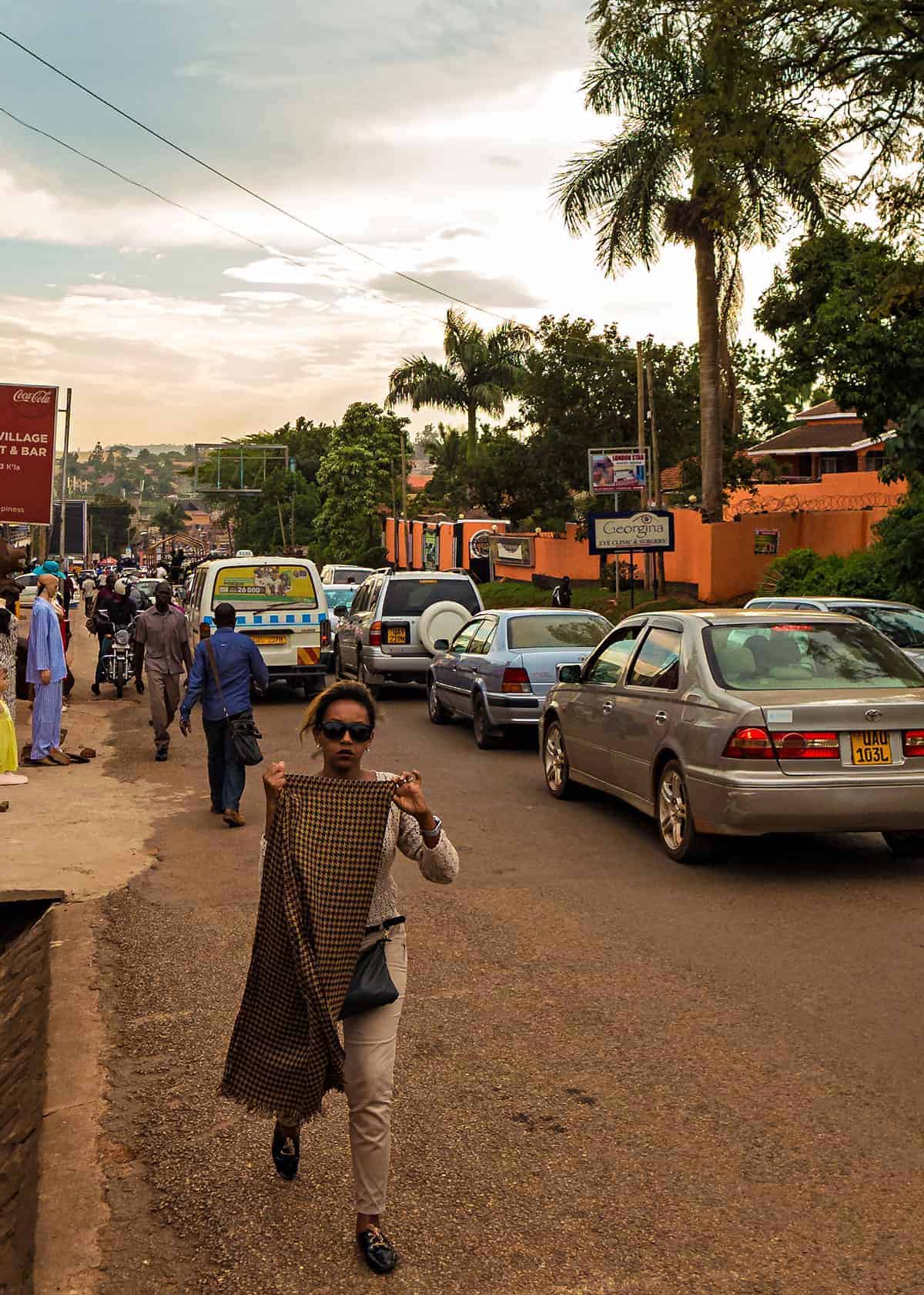
What is the best treatment for sunburn?
For best results, you should begin treating your sunburn as soon as you first notice your skin turning red. You will need to cool your hot skin down with a cool compress or damp towel. Next, you should rub lotion on your skin to moisturize it.
Lotion containing aloe vera is advised because it soothes your skin and reduces inflammation. You can also use hydrocortisone to relieve pain and speed up the healing.
How long does it take for a sunburn to go away?
This depends on the severity of your sunburn. A mild to moderate sunburn can last three to five days. You may notice damaged, dead skin begins to peel away after this.
Severe sunburn may last more than a week. If you don’t see your skin improving by a week, or if you notice blisters becoming infected, you should go see your doctor.
What does sun poisoning feel like?
A mild to moderate sunburn can make your skin hurt, and you may feel uncomfortable moving your body.
Sun poisoning, on the other hand, can make you feel as though you have come down with the flu. If you experience flu-like symptoms after being in the sun, such as a headache, chills, fever, nausea, and fatigue, you should seek medical advice.
How long does it take to get sun poisoning?
It only takes a few hours in the hot sun without proper hydration to experience the first symptoms of sun poisoning.
You may begin to feel dizzy, really tired, nauseated, or your head may begin to throb. If you feel any of these symptoms, you should immediately seek shade and clean drinking water.
Is sun poisoning deadly?
Most of the time, sun poisoning is not fatal, but it can possibly kill you.
Untreated blisters that become infected can jeopardize your health. Severe dehydration can limit blood circulation to vital organs, causing your body to go into shock. Without medical treatment, this could lead to death.
What are the long-term effects of sun exposure?
Long-term effects of too much exposure to the sun’s powerful UV rays often include premature aging, dark spots, and wrinkles.
Too much sun over time can also put you at risk for developing skin cancer because harmful UV rays can damage the DNA in your skin cells.
What will a doctor do for sun poisoning?
Your doctor may at first cool you down with cool compresses and hydrate you with drinking liquids. They may also give you medication for your headache and/or nausea. In the case of severe dehydration, the doctor may need to get fluids into your veins quickly through (IV) intravenous therapy.
What is the best way to protect yourself from the sun?
Staying indoors is the best way to protect yourself from the sun, but that would mean missing out on all of Uganda’s beautiful natural attractions.
While visiting Uganda, protect yourself with the following tips:
- Limit your exposure. The sun is most brutal during the midday hours, so try to avoid it and refrain from being in direct sunlight for long periods of time.
- Get under the shade. If you don’t have an umbrella or parasol, find a tree, overhang or shelter.
- Wear long-sleeved shirts, long pants or skirts, a sun hat, and sunglasses.
- Use sunscreen.
Crime in Uganda
What types of crimes affect tourists?
The following are some of the most common crimes that can affect international tourists:
- Pickpocketing
- Theft
- Burglary (theft using force and intimidation)
- Prostitution
- Scams (fraud)
Pickpocketing is often done without the victim even realizing it, so it’s a good idea to conceal your valuables or money in an anti-theft backpack or money belt. Theft can happen when a tourist leaves their valuables exposed or unattended.
A burglary can happen in and around bars where people may not be sober or vigilant. Prostitution usually happens in certain areas of a town that can be avoided. To prevent fraud from scammers, don’t accept any “free” gifts, services or unsolicited help from strangers.
What’s the best way to avoid pickpockets?
The best thing you can do to avoid pickpockets is to make it too hard for them to take a chance on you. Pickpockets know they only have a limited amount of time to try and steal from you, so you want pickpockets to look at you and think, “Nope, that’s too much trouble.”
Here are a few things you can do to avoid pickpockets:
- Be aware of your surroundings. Pickpockets come in all sexes, ages, and appearances. Sometimes they are alone and other times, they are with a partner or gang.
- Be especially alert at tourist attractions, in high-traffic areas, and on public transportation where people often bump into one another.
- Don’t wear anything that announces the fact that you are a tourist with money. (No expensive clothing, shoes, jewelry or watches)
- Keep your wallet in your front pocket, or wear a hidden money belt.
- Keep shopping bags between your feet at restaurants and in front of you on public transportation.
- Wear anti-theft backpacks, bags, and purses that are slash-proof and have locks on the zippers.
Communicating in Uganda
Being able to communicate is pretty important while traveling. Something as simple as a broken bone or lost passport can get pretty complicated if you can’t understand or be understood.
What are the official languages of Uganda?
Would you believe that more than 40 languages are spoken in Uganda? Even so, only English and Swahili are the country’s two official languages.
- English: After Uganda became a British colony in the late 1800s, English was widely used in the government, education and media sectors. After the country gained its independence in 1962, English remained the official language and became associated with higher social status. While English does dominate many levels of Ugandan society today, tribal languages are often used in primary schools.
- Swahili: During the dictatorship of Idi Amin Dada from 1971 to 1979, Swahili was declared the country’s national language, but its official use was replaced with English again at the end of the regime. In 2005, Swahili was chosen as the country’s second official language because it was a common African trade language that could be used to unite the people of Uganda by not elevating anyone tribal language over the other. Today, you can see Swahili on Ugandan shilling notes.
Learn more about language in our Travelers Guide to Language in Uganda
Planning a trip? Check out our guide: 16 Safest Countries in Africa
Now that you have learned more about Uganda, how do you feel about visiting? We hope you have found this article informing and educational. Do you still have any unanswered questions? Let us know in the comments section!

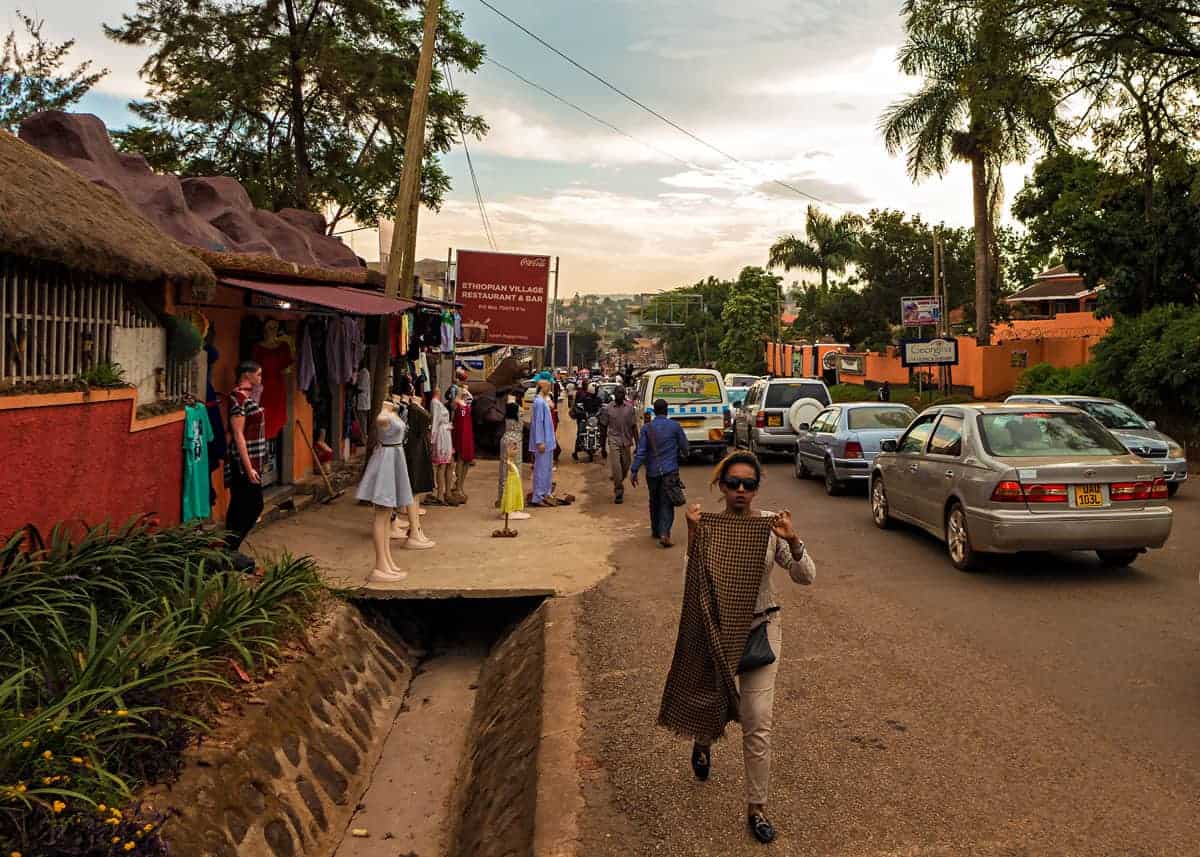

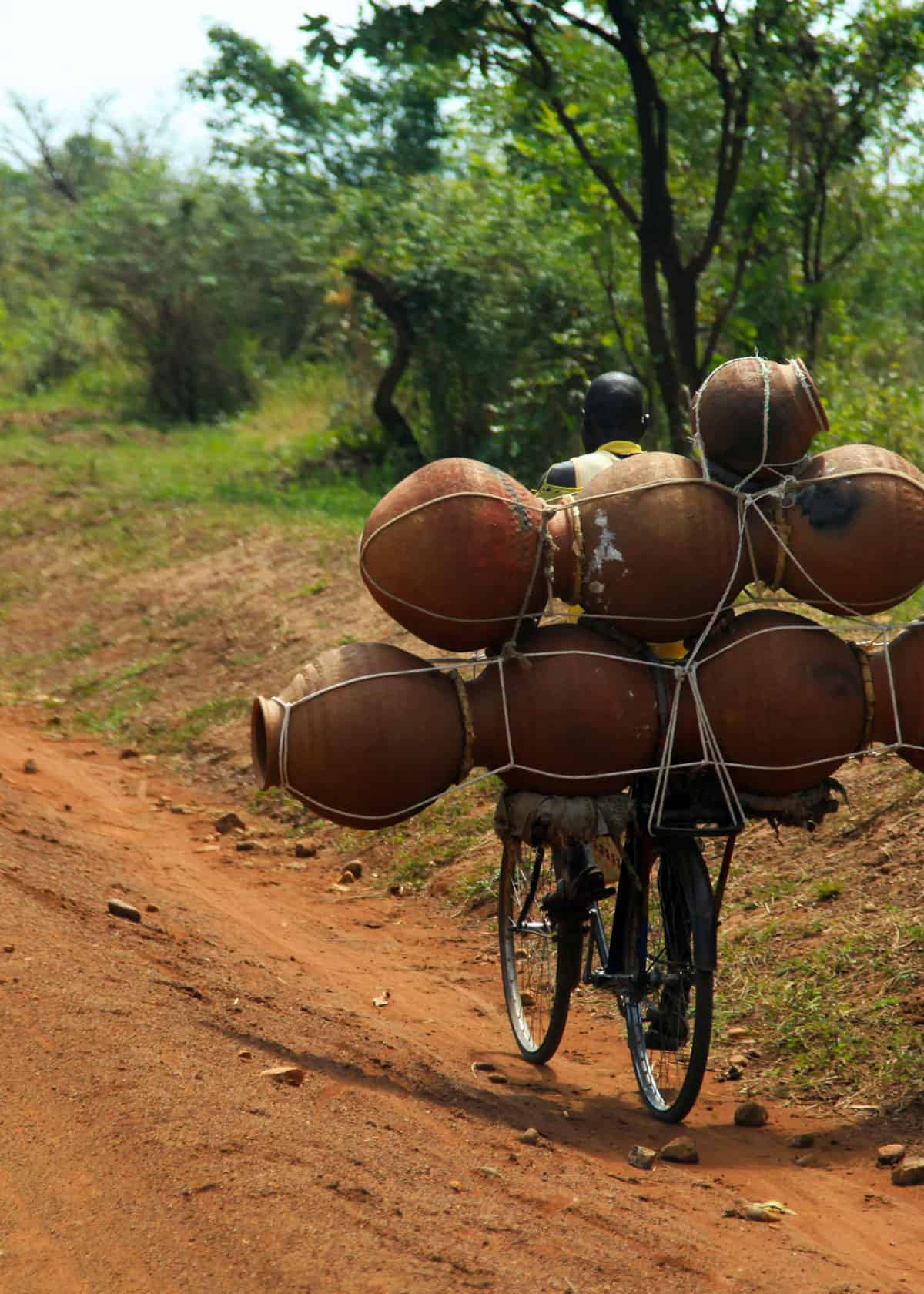

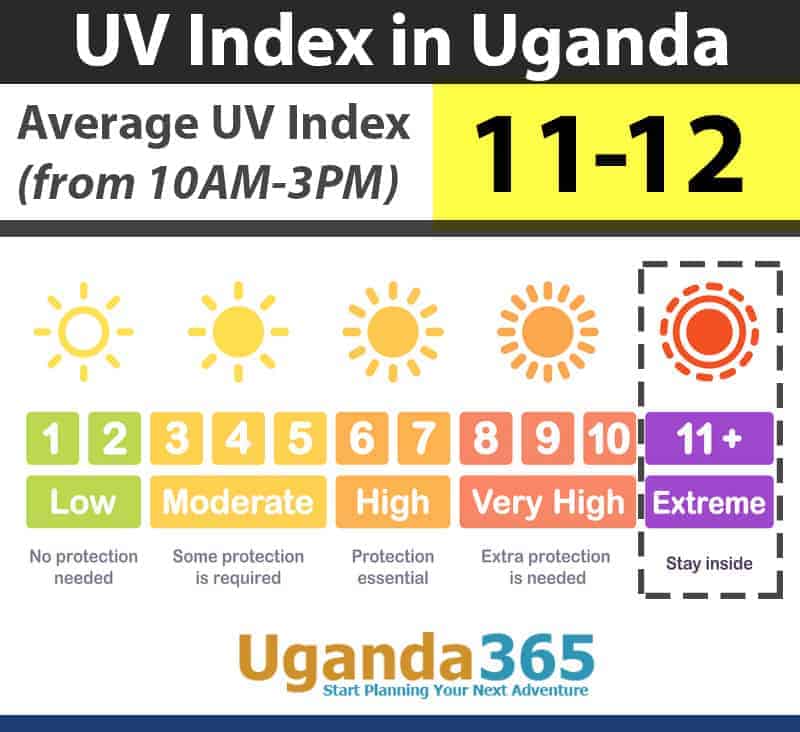


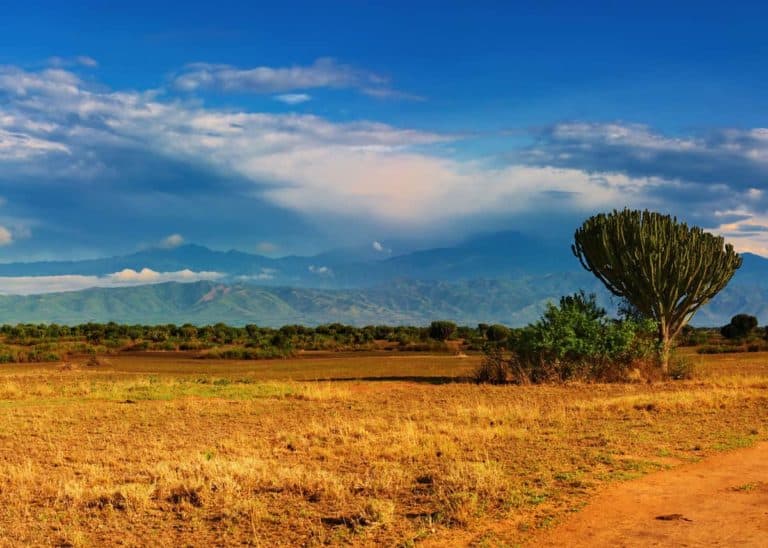
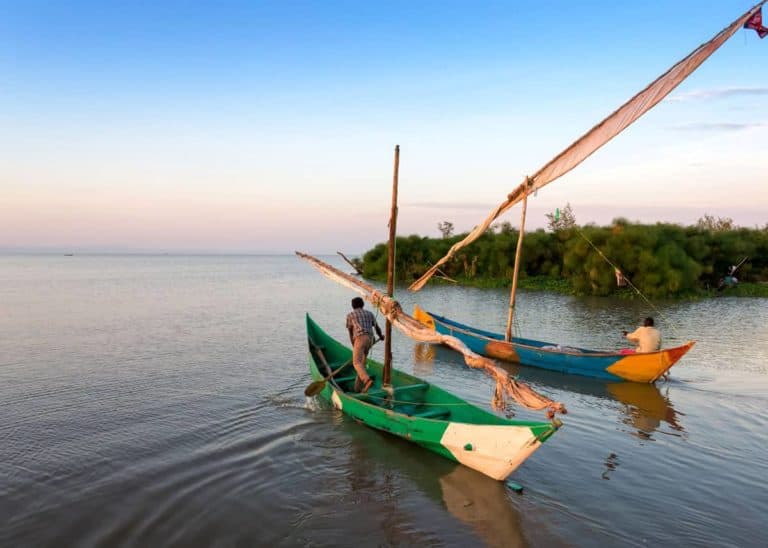



Dear Bryan,
Thank you for compiling this long and helpful list on safety tips in Uganda.
Everything is loud and clear and it has been in easy to read and understand format for even less-English user
I am still not sure whether tap water in Uganda is safe as some travel books put it. I will keep investigating.
Thanks Mamerito! Would love any updates as you learn them.